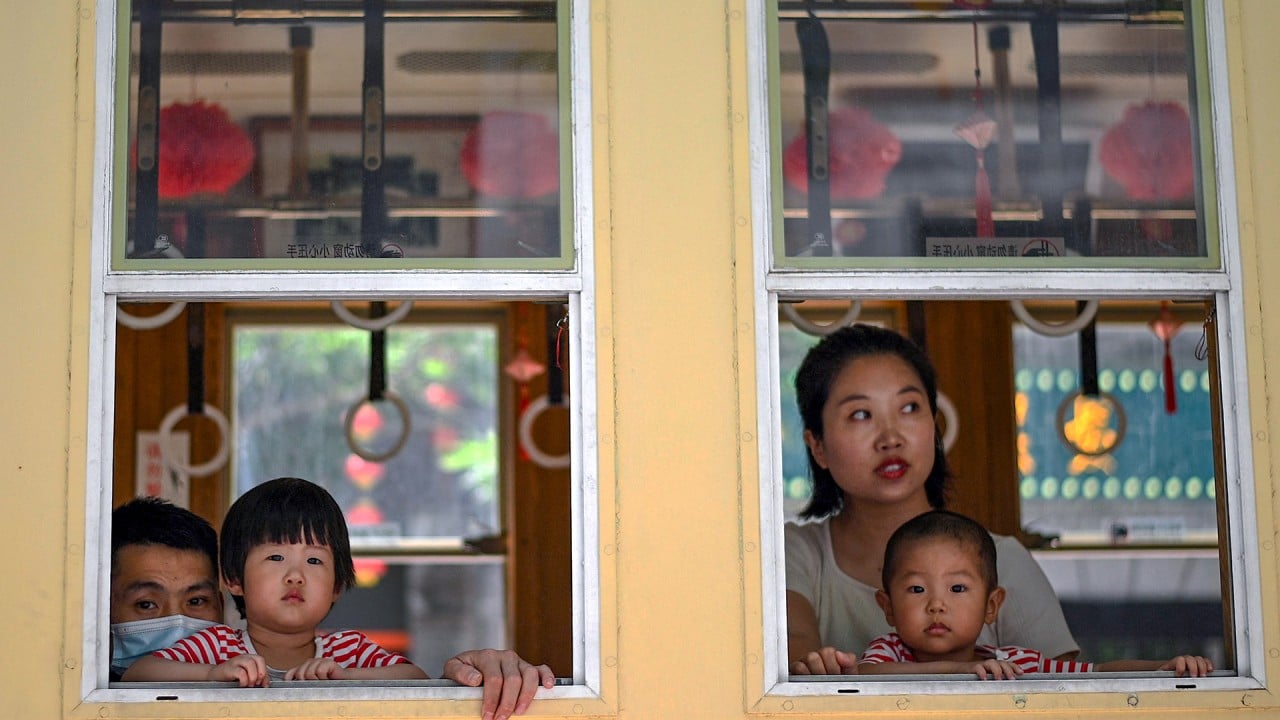
China wants to raise its birth rate, but has missed new mothers’ every need
- China has been taking measures to encourage couples to have children, offering incentives ranging from cash to homebuyer subsidies
- However, there is not enough information on what to expect and how to raise a child, not much community help and the ‘birth reward’ doesn’t go very far
The second day after I gave birth, in February, I woke up in hospital to find my breasts as hard as rocks. I could hardly move my arms or get out of bed, because every movement jolted a muscle around my chest, resulting in excruciating pain.
I had to shout for help. The hospital sent in a masseur. Two sweaty hours later, I regained myself somewhat.
It is a natural process immediately after birth, when your body notices the changes and your breasts fill with milk – in my case, by so much that they felt rock hard. The only thing to do to relieve the pain is to constantly breastfeed your baby.
But I did not know that then. Nor did I have any experience of taking care of a newborn, but there I was, in hospital, with my husband on a sofa and our baby girl in the cot next to us.
She started screaming at 3am. Then again at 5am. We frantically rang the bell for the nurse, but there were only four of them for an entire floor of 17 screaming babies.
When I was pregnant, my husband and I read up on birth and childcare, but we found things very different in practice.
Moreover, we received little help. There was no one to tell us what to expect, what we were doing wrong. The nurses came in to take your temperature every now and then, and give medicine, but everybody acted as if you already knew everything about keeping a child alive and well.
But the measures are not having the desired effect – and for good reason. From my experience, I can see the authorities have missed new mothers’ every need.
A friend in Hong Kong told me hospitals there distribute brochures on how to raise a child, and the information is easy to find on government websites. On the mainland, however, you have to rely heavily on social media, word of mouth and generational experience.
The discussion of a woman’s body remains largely taboo. A few years ago, a popular internet post described how, after giving birth, a woman experienced a urine leak. That came as a shock to many unmarried women.
They began to realise that no one had really told them what to expect during pregnancy and after birth. The information about swollen breasts, bleeding, body sores, midnight feeds and how to care for a baby is all missing.
China’s population policy is unfit for the modern woman
In the past months, whenever my baby fell sick, or when I felt unsure about feeding, I had to rely on asking friends or searching social media. Often, I found seemingly contradictory information, even on official websites; I also had to take the information I found with a pinch of salt – one post suggested I tape ginger to my baby’s feet to treat flu.
There’s not much community help either. A child can only go to childcare from 18 months old. Until then, families either ask elderly relatives to watch their child, or spend thousands of yuan to employ help.
The government has noticed this and tried to offer help. Almost five months after I gave birth, I finally received my 1,000 yuan (US$137) “birth reward” from the Guangdong government (yes, they call it a reward). To receive this money, I had to send four different documents to the government.
It felt unreal seeing that money in my account – and seeing it disappear again the following week. It was only enough to buy two cans of baby milk formula – which lasts two weeks. The financial aid was nothing compared with the amount I had to spend on a bassinet, changing table, stroller, baby car seat and the mountains of nappies.
And money alone isn’t enough. What good is it when you’re lying awake at 3am bleeding, with a screaming baby next to you?
China’s population policy is unfit for the modern woman
I marvelled at how long his leave was and expressed how envious I was of Danish women for receiving help in this way. “Yes, we are doing something right,” he said.
As for China, we haven’t even begun on the right path. It will be a long time before women can get all the help they need to deal with childbirth and feel ready to have children.
Phoebe Zhang is a society reporter with the Post

.jpg?itok=H5_PTCSf&v=1700020945)

